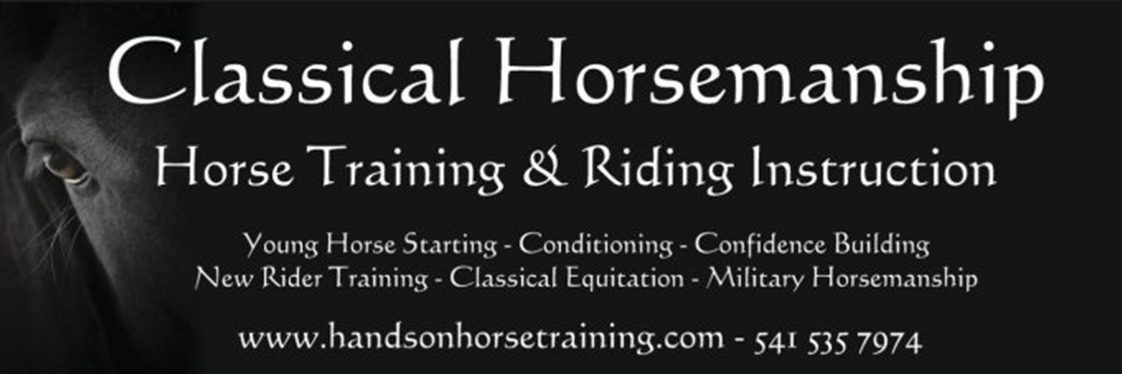“The trust between human and horse is based on the same behavioral rules that regulate social life within the herd: Those who have obtained a higher rank in the herd assume at the same time the responsibility for the weaker members.” Kurt Albrecht von Ziegner
This was not written by one of the popular American ‘Natural Horsemanship’ clinicians, or one of their Australian counterparts. It was not even written by one of their forerunners – those very wise cowboys whose gentle methods were such a great departure from the harsher methods of many of their contemporaries. It was written by a German Dressage Master.
This concept of making sure you ‘outrank’ your horse is nothing new. It has been a fundamental of horsemanship for as long as men have domesticated the horse. What has changed over time is the understanding of what it means to be of “higher rank in the herd”. For most people who give it any thought at all, this means dominating the horse by moving it, controlling space, forcing it to accept contact, and following where led. It is all about the horse being subservient and behaving as a subordinate. While this may not take the form of beating the horse or other very harsh means of training, it does use varying degrees of aggression, just as horses sometimes use as part of herd dynamics.
What is missing from the methods of so many horsemen is the other side of herd leadership. Herd leadership is more than pushing the lower-ranking horses around. The real herd leader is not the toughest horse, but rather the horse that inspires the greatest sense of well-being in the herd. It is not enough that the leader be strong, they must also be calm, assured, confidence-inspiring and most of all, aware of the needs of the rest of the herd. Leaders inspire their herd to follow, they do not simply demand it, nor do they take it for granted. Earning the position of leader is a never-ending challenge that requires constant awareness of the needs of the subordinate members of the herd.
As leaders, it is incumbent on us to adjust our behavior to the needs of every member of our herd individually. While all horses share certain traits of their evolution and to a lesser degree, their breeding, every one of them is unique. As such, each needs something slightly different from their leader in order to feel safe, secure, and emotionally stable. Using the exact same training and handling methods with every horse you encounter will simply not suffice.
The other aspect of the search for leadership that so many riders fail to recognize is that it is constant and never-ending. You do not just establish leadership and once you have it, you move on to the training of the horse. Everything you do when you interact with horses and everything you don’t do has an effect on the herd dynamic. Each time you go to the pasture to fetch your horse for the day’s training, or when you go to feed, or when you are simply walking up to touch them on the nose, you must be completely in the moment and aware of your interaction. You must be aware of the mood of the horse and in control of your own. If you have had a bad day and are feeling a little short-tempered, that will be the day the horse resists. If you have a time constraint and are a little impatient, that is the day the horse will not let you catch it. Focus on talking to someone on your cell phone on your way to the tie rack and the horse will take that opportunity to put its head down to eat as you are leading it. Yes, these are generalizations; I am not saying these things will happen every time you let your focus lessen. I am saying these lapses on your part add up. When a horse feels your impatience it becomes tense. When a horse feels you are not paying attention, how can they look to you to lead and protect them?
One last factor to consider and I will end this lecture. It harkens back to the individual natures of horses. Just as your daily experiences can affect your mood and sense of well-being, horses have daily experiences as well. The hoses that willing and happily working in the arena the day before, today is scared and nervous, because sometime in the night, some predator crossed the property and used your arena for a shortcut. The generally friendly mare is suddenly less friendly to other mares. The gelding who loves children starts backing away from them because someone’s unsupervised kid was teasing them last night after you went home from the stables. Each day, every person and every horse has their own experiences. If you expect your horses to always be the same horse on Saturday as they were on Friday, and don’t notice a change of mood or attitude and go about your routine as usual, you may find your position of leader put to an unexpected test.
So back to the quote; it is not enough that we demand the role of herd leader and expect it, we must constantly earn it by making sure we deserve it.
